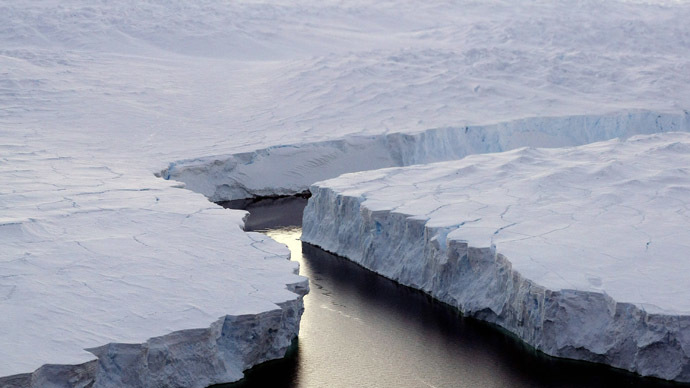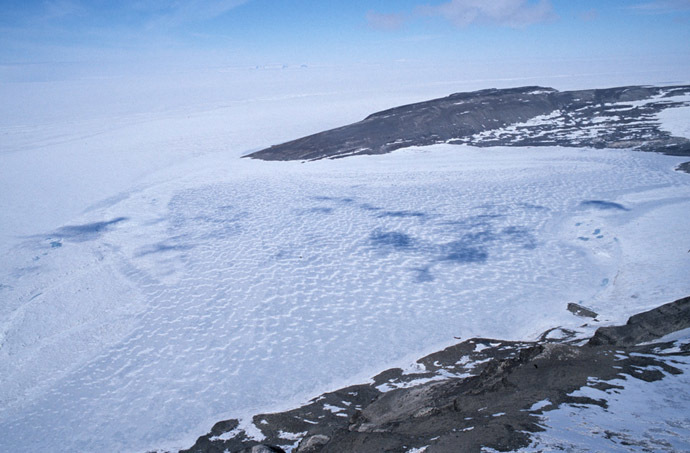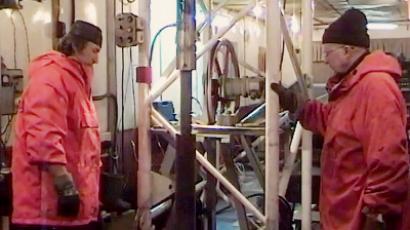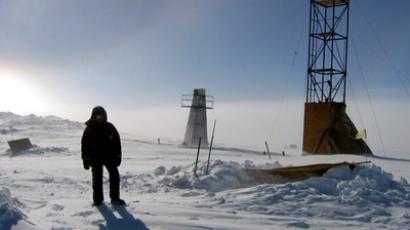New life forms found under sub-glacial Antarctic lake

Scientists from the British Antarctic Survey have found life in mud samples at the bottom of a sub-glacial lake in Antarctica. They found microbes dating back almost 100,000 years as well as organisms previously unknown to science.
The research team from the British Antarctic Survey and the universities of Northumbria and Edinburgh made their astonishing discovery at Lake Hodgson on the Antarctic Peninsula, and published their findings online in the journal Diversity.
During the last Ice Age the lake was covered by more than 400 meters of ice, but the ice sheet is becoming more exposed and is retreating and melting at an unprecedented rate. Due to rising temperatures in Antarctica, the emerging sub-glacial lake now has a thin covering of just 3 to 4 meters.
The team used a “clean core” drill style and used sterilized equipment to avoid possible contamination. They burrowed into and sampled sediments at the bottom of the lake, which is 93 meters deep and about 1.5 kilometers long by 1.5 kilometers wide.
The lake was believed to be too harsh an environment for any
forms of life to survive, but the team found that many species of
microbes were thriving in the extreme climate of the lake’s
sediments.

The top few centimeters of the core contained current and recent organisms, but the layers of mud at the bottom represent a time capsule containing the DNA of microbes that have lived there throughout the millennia. Once the core reached a depth of 3.2 meters, the microbes dated back nearly 100,000 years.
“The fact that these organisms have survived in such a unique environment could mean they have developed in unique ways which could lead to exciting discoveries for us. This is the early stage and we now need to do more work to further investigate these life forms,” lead researcher David Pearce said in a statement.
The team found life in the form of fossil DNA, including a range of extremophiles, a species adapted to the most extreme environments, which use a variety of chemical methods to sustain life without oxygen.
One of the DNA sequences was related to one of the most ancient
forms of life known on earth, but over 20 percent of organisms
are previously unknown.

Twenty-three percent of this diversity could only be identified to “unidentified bacterium.” Many of these species are likely to be completely new to science.
“What was surprising was the high biomass diversity we found. This is the first time microbes have been identified living in the sediments of a sub-glacial Antarctic lake and indicates that life can exist and potentially thrive in environments we would consider too extreme,” Pearce said.
The discovery provides an insight into how life developed thousands of years ago in complete isolation from the rest of life on earth.
Antarctic environments are also sometimes compared to life on environments such as that on Europa, an ice-covered moon of Jupiter where it is suspected life might exist.
But even finding life in Antarctica is not easy. A previous British expedition to Lake Ellsworth was called off late last year due to technical difficulties, while a Russian-led project that has sampled life in Lake Vostok has also reported finding signs of life. A US expedition which sampled the environment of Lake Whillans on the edge of an Antarctic ice sheet has yet to report its findings.














